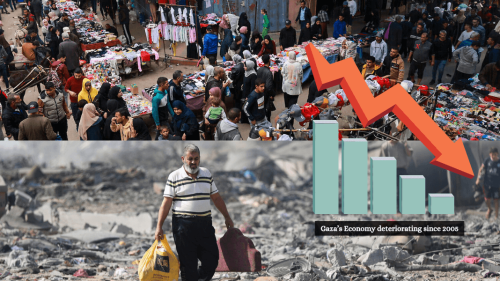Is Islamic finance a 'huge flop'?

In London, an acknowledged hub for Islamic finance, the Times had an eye-catching headline recently: 'After six years, Sharia-compliant bank products are 'huge flop.' It resulted in numerous comments by those involved in Islamic finance, reminding us all that negativity draws a reaction. But the jury is still out on the embryonic Islamic finance sector in London, and using a micro-cap size listed Islamic bank, the Islamic Bank of Britain (IBB), may be more about the entity and its offering than the viability of Islamic finance in a non-Muslim country.
Lets take a closer look at retail Islamic finance in G-20 countries like UK. IBB's situation may have been more about the consequence of cheerleading Islamic finance by emphasizing quantity - namely the two million Muslims in the UK - over quality. Obviously not many efforts have yet been bankable.
A quick glance at Islamic retail banking in Muslim countries - Islamic finance hubs like Bahrain, UAE, and Malaysia - reveals that not one country had Islamic finance surpass an estimated 30% of all types of banking. Yet, in Malaysia, majority of the customers for Islamic finance are not Muslims, but ethnic-Chinese and they are commonly assumed to be shrewd and savvy on financing.
So, how does the industry take this successful aspect of Islamic finance in Malaysia and transplant it to the UK? Or, is there more to the story, since ethnic Chinese are the largest Islamic finance users in Malaysia, and this phenomenon may not necessarily be transferable to Britain?
Economic immigrants
There is a "numbers bias" for British Muslims, as large majorities are from the Indian subcontinent - India, Pakistan, and Bangladesh. They came seeking better economic opportunities, education for their children, upward mobility, and so on. These immigrants came from countries where Islamic finance was, at best, more of a theory and less of a practice in the 1960s-70s. But although the British Islamic banking experience, from Albaraka to United Bank of Kuwait to (now) the Islamic Bank of Britain, generally resulted in a leveled regulatory and tax playing field, that has not opened the floodgates to Islamic finance. Why?
First, the British government has been talking about a sovereign sukuk for a few years, though nothing has yet materialized. Post Prime Minister Tony Blair, each successive government has stated their enthusiastic commitment and firm support for Islamic finance, and yet the industry still awaits for this magical sukuk.
Yes, the credit crisis has provided set-backs, buts let's hope its not an opportunistic excuse for further delays. France's recent interest in being an Islamic finance hub, coupled with their comments about a corporate benchmark sukuk could actually pressure Britain to issue a sovereign sukuk beforehand.
Second, the inability of Islamic finance to take off at the retail level in Britain, or any other G-20 country for that matter, may be attributed to a variety of factors. The lack of interest in Islamic finance, coupled with a comfort with conventional finance, may foster the interpretation that a certain type of 'interest' is acceptable. Often, Islamic finance is simply too expensive, resulting in a financial 'penalty' for being a Muslim. For some, Islamic finance, as presently offered, is not 'Islamic' enough, or the scholars signing off on such products may not be well known or credible. Education may not be responsive to the needs of the bankable masses. Finally, in a post-9/11 environment, some Muslims may be concerned that if they adopt Islamic finance, they may end up on a government watch-list.
Then there is the theory that some Muslims may have a debt-averse mindset, compounded, in Britain, with the availability of 'Islamic' debt offerings, such as Islamic mortgages. The anti-debt mindset may be a cultural influence and/or a literal interpretation from the Holy Qur'an, which describes the permissibility of trade and prohibition against interest (2:275-279). There are countless stories of British Muslims living and operating in a cash economy, renting apartments, and accumulating enough savings over years or decades to finally buy a home in cash.
Education and awareness
We have all heard about the need for education about Islamic finance, in the form of seminars, workshops, conferences, newsletters, industry organizations, or on-line courses. The slow consumer acceptance of Islamic products may then be due to incomplete education, absorption, or understanding, leaving the reaction time cycle for product buy-in much longer than expected.
But what about all the surveys and questionnaires about Islamic finance that offer support as basis for the offering? The possibility of survey and interview bias must be factored into the formula. During the survey stage with the 'man on the street' and written questionnaires, there may not have been a conscious awareness of minimizing leading questions and minimizing impact of 'politically correct' answers. It would seem that British Muslims, like any other Muslim or non-Muslim interested in Islamic finance, want broad spectrums of products at market prices with comparable customer service and support.
However, the bottom-line is to look at the end result, as the take up of Islamic finance at the bankable retail level has not met expectations. Are a majority of British Muslims simply too old, too poor or too new to be interested in Islamic finance?
Back to basics
The stakeholders pushing Islamic finance may need to have a reality check concerning retail offerings in non-Muslim countries with an established Muslim minority. The enthusiasm Islamic bankers have had for Islamic finance may not be shared by a percentage of Muslims at the retail level. The Islamically bankable population appears to be quite small, hence requiring a better understanding of demand, the right mix of product offerings, proper distribution channels, and support service.
Calling Islamic financing a 'huge flop' may be a needed wake-up call for Islamic finance on the true market size and opportunity that exists and our ability to manage demand expectations. Obviously, something is broken and we need to move out of the cheerleading comfort zone, realistically assessing the lack of interest by the 'Muslim on the street' when it comes to Islamic finance.
*****
Rushdi Siddiqui is Head of Islamic Finance at Thomson Reuters. Before joined Thomson Reuters he was Global Director for Dow Jones's Islamic Market Indices. He led Dow Jones Indexes entry and its global expansion into Islamic finance. Mr Siddiqui has considerable experience in the financial markets having worked at a Wall Street investment bank and commercial bank in the 1990s.
Related Suggestions
Yes, we get it. Thank you for reminding us. I don't know what we would do without you. It's just that you would also need to remind many financial institutions around the world, including some prestigious universities in the United States as well as Europe. They are currently working on implementing some of these policies in their "modern economy". What is so "modern" about this so-called "modern economy", Suresh? The fact that millions of people have lost their hard earned pensions or millions of people losing their jobs or millions of people getting kicked out of their houses? Or, the fact that people are slaves to credit cards and debt for the rest of their lives, which even upon their death, is passed onto their siblings and families. Or the fact that Wall Street is run by the thugs and thieves who crush everything in their path. They can even steal $50 billion, destroy thousands of families, and even get away with it while someone can steal a bag of potato chips and get 20 years in prison? Is that what you consider "modern"? Oh yes, every 20 years there is a recession. Perhaps it's time to look for alternatives.
Romesh: "I don't know, you will be allowed into Heaven?" Well, do you or do you not know? Which is it?
Romesh: "So, get rid of this hypocrisy. " I couldn't agree with you more, Shuresh. We should all strive to getting rid of this hypocrisy, so why don't we start with you.
Thank you for enlightening us about Islamic finance. It's very much appreciated.
Romesh: "And stock exschanges are nothing but recognized form of gambling dens. Is gambling islamic?" That's your opinion. As long as certain rules are being followed, trading and investing is permissible. Short-selling is not, however. And some other things. No, gambling is not permissible in Islam.
Romesh: "To avoid usury laws, in Saudi Arabia, all transanction are done using overseas shell companies, even though the computers doing the transactions are located in Saudi Arabia (or could be located in Dubai or Paris)." Oh my, there is technology in the Middle East. No way, Shuresh. Ok, are the computers located in Saudi Arabia or Dubai or Paris? Don't confuse us now. You seem to know all about the transactions and how the money is wired but don't know the location of computers? Come on, you can do better than that.
Romesh: "Is that islamic?" Is what Islamic? Saudi Arabia or Paris? By the way, Islamic in the English language is capitalized. Just so you know.
Romesh: "Who are you trying to fool? Yourself or God?" I've already answered it.
Romesh: "Is funny money ($$$) issued by FED or Bank of England or ECB islamic?"
Until today I didn't realize how funny the money is, so I pulled out a couple of bills out of pocket and cannot stop laughing. Thank you for making me laugh, Shuresh
Romesh: "Is electronic money islamic?"
It is. Read the small print.
Romesh: "Is money issued by non-muslim banks islamic?"
It is as long as they conduct business according to Islamic teachings
Romesh: "Does it say "In God we trust" or "in Allah we trust"?"
It does. Have you ever seen any dollar bills?
Romesh: "Does electronic money has such inscription?" It does, you just need to look for it
Romesh: "Do Cheques have this inscription?" Yes, depending on who manufactures them and where
Romesh: "Most of money moves electronically or by cheques these days." Ok, and the point is? In order for that money to move electronically, you've got to have something in the bank first - hard cash
Romesh: "What is money under islam? Nobody wants to answer the basic question."
Maybe the question itself is not that basic. Since you an expert on Islamic finance, I'm sure you'll enlighten us. We are anxiously awaiting a response from you.
Romesh: "Why have islamic finance?"
Why not?
Romesh: "To avoid the concept of 'usury'." Yes, among other things
Romesh: "What is usury? The fees you pay for ATM is usury or 'fees'?"
Why ask a question to which you've already provided an answer. You said "the fees", so it must be "the fees". You should learn how to use ATM machines so that you don't have pay any fees. As an expert on finance, I thought you would already know this. I'm little disappointed, Shuresh.
Romesh: "Call it whatever you want?" Ok, we will.
Romesh: "Who are you going to fool? Yourself or God." No, just YOU.
What is money under islam? Nobody wants to answer the basic question.
Why have islamic finance? To avoid the concept of 'usury'. What is usury? The fees you pay for ATM is usury or 'fees'? Call it whatever you want? Who are you going to fool? Yourself or God.
Saudi Arabia has a stock exchange. And stock exschanges are nothing but recognized form of gambling dens. Is gambling islamic?.
To avoid usury laws, in Saudi Arabia, all transanction are done using overseas shell companies, even though the computers doing the transactions are located in Saudi Arabia (or could be located in Dubai or Paris). Is that islamic? Who are you trying to fool? Yourself or God?
You cannot run a modern economy with islamic finance. Got it. That is why, nobody practises it. I don't know, you will be allowed into Heaven?
So, get rid of this hypocrisy.

















